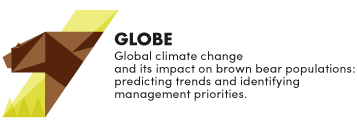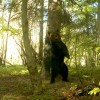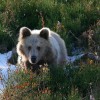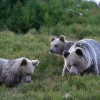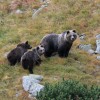Climate is the “average weather” in a place over many years. It includes patterns of temperature, precipitation (rain or snow), humidity, wind and seasons. Weather is the events that happen each day in our atmosphere. While weather can change in some hours, climate used to take thousands, even million years to change.
Climate change is defined by the Intergovernmental Panel on Climate Change (IPCC) as a change in the state and properties of the climate that persists for an extended period, typically decades or longer. It refers to any change in climate over time, whether due to natural variability or as a result of human activity. However, current climate change refers to a change of climate that is attributed directly or indirectly to human activity, in addition to natural climate variability, and that alters the composition of the global atmosphere. This is the definition used by the United Nations Framework Convention on Climate Change (UNFCCC).
Climate change is a global issue. The 2007 report by IPCC shows unequivocal warming of the climate. The Earth's climate has warmed by an average of 0.74°C (+0.56°C to 0.92°C) in the last 100 years (1906-2005). The greater rate of warming has been from 1976 onwards. Eleven of the last twelve years (1995-2006) rank among the twelve warmest years in the instrumental record of global surface temperature (since 1850). IPCC predicts a warming of about 0.2°C per decade in the next 20 years. It is very likely that cold days, cold nights and frosts have become less frequent over most land areas. Snow and ice extent decreases are also observed. Satellite data show that annual average Arctic sea ice extent has shrunk by 2.7% per decade. Mountain glaciers and snow cover have declined in both hemispheres. Since 1900, seasonally frozen ground has decreased by about 7% in the Northern Hemisphere, with decreases in spring of up to 15%. Increases in sea level are consistent with warming and the global average sea level rose at an average rate of about 3.1 mm per year from 1993 to 2003.
Climate change is projected to be particularly strong in northern latitudes. Boreal and mountain regions are likely to be especially affected by climate change. In Europe, mountainous areas will face glacier retreat, reduced snow cover and winter tourism, and extensive species losses (in some areas up to 60% under high emissions scenarios by 2080). An increase in precipitation has also been observed in northern Europe (1900-2005). The frequency of heat waves and heavy precipitation events are likely to increase as well.
